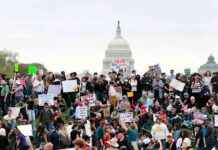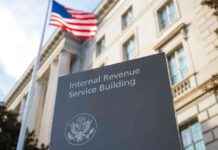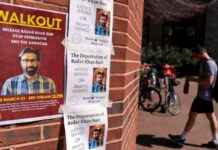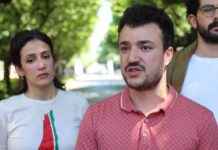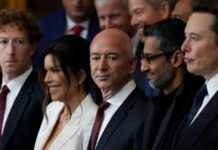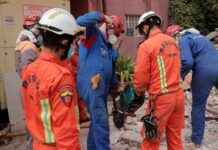Kremlin Ceasefire Deal: A Beacon of Hope Amidst War
In the wake of escalating tension between Ukraine and Russia, there seems to be a glimmer of hope on the horizon. Kremlin spokesman Dmitry Peskov recently shed light on a potential ceasefire deal, expressing “cautious optimism” following talks between a U.S. envoy and Russian President Vladimir Putin in Moscow. This development has sparked a wave of anticipation and speculation, as the world watches on, hoping for a resolution to the ongoing conflict.
Putin’s Qualified Support and Solidarity with Trump
During a telephone news briefing with reporters, Peskov elaborated on Putin’s stance on the proposed ceasefire deal. While Putin has shown qualified support for the U.S. proposal to halt the war with Ukraine for 30 days, he emphasized the need for certain questions to be addressed. Peskov highlighted Putin’s solidarity with U.S. President Donald Trump’s position, signaling a potential alignment of interests between the two leaders.
Late-night talks between Putin and U.S. special envoy Steve Witkoff further underscored the significance of this diplomatic effort. Putin conveyed crucial information and signals to President Trump through Witkoff, paving the way for a potential conversation between the two leaders. Trump’s subsequent statement on his Truth Social website echoed this sentiment, expressing hope that the conflict may finally come to an end.
Challenges and Skepticism
Despite the promising developments, challenges and skepticism loom large on the horizon. Ukrainian President Volodymyr Zelenskyy raised doubts about Putin’s intentions, characterizing his support for the U.S. plan as manipulative. Zelenskyy’s remarks shed light on the complexities of the situation, hinting at underlying tensions and power dynamics at play.
The conflicting narratives between Russia and Ukraine further complicate the path to peace. While Putin assured that Ukrainian troops in the Kursk border region would not be harmed if they surrendered, Ukraine’s military refuted claims of being surrounded by Russian forces. This discord underscores the need for clarity and transparency in the negotiations moving forward.
In the midst of these diplomatic maneuvers, the impact of the conflict on the Russian population cannot be overlooked. The British Defense Ministry’s report on Russia’s healthcare system revealed the toll of prioritizing military funding over public health. The closure of hospitals and medical facilities, coupled with shortages of staff and equipment, paints a grim picture of the repercussions of war on civilian life.
As the world waits with bated breath for further developments, the road to peace remains fraught with challenges and uncertainties. The coming days will be crucial in determining the fate of the proposed ceasefire deal and its potential implications for the region. In the words of Peskov, “cautious optimism” may be the prevailing sentiment, but the road ahead is paved with obstacles that must be navigated with care and resolve.



